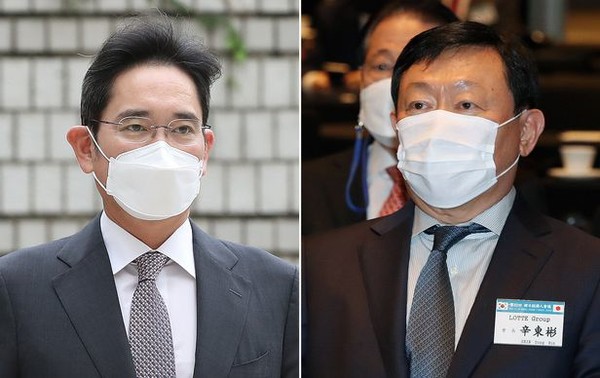By virtue of the National Liberation Day of Korea on August 15th, 1693 people received the presidential special amnesty including Lee Jae-yong, vice chairman of Samsung Electronics, and Shin Dong-bin, CEO of Lotte Corporation. Meanwhile, politicians were not granted amnesties according to public opinion. The special amnesty is the president’s inherent jurisdiction carried out on special days based on the Constitution. However, the public commented that this year’s amnesty was purely a preferential treatment for conglomerates, and pointed out that no political apologies and economic effects have been achieved by them. Thus, the presidential special amnesty that is not achieving its original purpose should be under surveillance of additional control devices.

The amnesty is divided into a general amnesty and a special amnesty. A general amnesty must be approved by the National Assembly. It is given to all those sentenced to specific types of crimes determined by the National Assembly for each amnesty. But for the special amnesty, the question of fairness and effectiveness is always brought up because it chooses specific people to exempt them from punishment. First of all, special amnesty for politicians failed to elicit genuine reflection or apologies for social integration and was merely a means to win political favor. One such case is former President Chun Doo-hwan’s special amnesty in 1997, by the Kim Young-sam administration and President-elect Kim Dae-jung, who competitively pledged to reinstate Chun Doo-hwan solely to elicit votes in North Gyeongsang-do Province. However, he passed away in November last year without ever having apologized for the state massacre during the Gwangju Democratization Uprising. Additionally, the positive effect of businessman's special amnesty is unproven. Especially, the absence of conglomerates in management does not directly affect the company’s growth. For example, when Lee Jae-yong was imprisoned for a year from February 2017, operating profits increased to 53.6 trillion won, 80% higher than the previous year. Rather, the preferential favors undermine social integration by giving people a sense of deprivation and betrayal in common sense and fairness.
The decision process of the special amnesty, which is effective only at the president's authority is what enables such arbitrariness. The special amnesty goes through a resolution of the amnesty inquiry committee and the Cabinet meeting. However, the president has the right to personnel appointments to all members of the committee, hence surveillances on the abuse of presidential authority cannot be made. Therefore, it is necessary to arrange a control device to ensure the effectiveness and legitimacy of the special amnesty system. Like the personnel organization of Korea’s Constitutional Court, the President, the National Assembly, and the Chief Justice of the Supreme Court should recommend the same number of members to the amnesty inquiry committee. Furthermore, like other countries which do not pardon public corruption crimes and serious economic crimes or before a certain term in prison, types of crimes subject to amnesty and mandatory imprisonment terms should be stipulated.
The Constitutional Court of Korea said in hearing of the case about the Amnesty Act in 2000, that the true purpose of the special amnesty is to correct wrong judgements of the past and to reconcile social conflicts. In order to realize that, a device to control the presidential special amnesty must be introduced.

